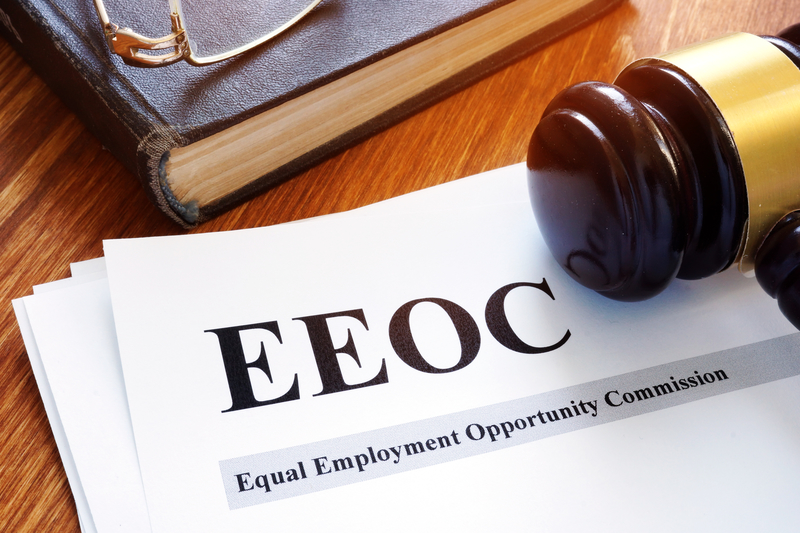by Amy Thomson.

Employers required to file an annual EEO-1 report should have submitted Component 1 data by May 31, 2019, unless they requested a two-week extension (to June 14, 2019). However, Component 2 data, a new requirement, must be submitted for the years 2017 and 2018 by September 30, 2019. Who is required to file an EEO-1 report, and what are the new requirements? More importantly, what should employers be doing now?
Who is required to file an EEO-1 form?
The employers that are required to file an annual EEO-1 report include those that are:
- Subject to Title VII with 100 or more employees; and
- Federal contractors with 50 or more employees and a contract of $50,000 or more with the federal government.
Why the addition of Component 2?
During the Obama Administration, the Equal Employment Opportunity Commission (EEOC) revised the EEO-1 report to include a second component to collect more extensive data. This additional data includes pay and hours worked by race, ethnicity, and sex in an attempt to track unlawful pay disparities in the workplace. The revision was put on hold by the current administration until a District Court judge recently lifted the stay. The federal government is now permitted and will begin collecting the data.
What is the new information required in Component 2?
Up until the revision, employers have been submitting Component 1 data that breaks down the race, ethnicity, and sex of the workforce into 10 job categories. With the revision, employers must now submit Component 2 data that includes data on pay and hours worked taken from employees’ W-2 forms, broken down into 12 pay bands across the 10 job categories by the same racial, ethnic, and sex groups.
What should employers do now?
The process sounds simple enough, you think. And, September 30, 2019, seems like a long way off. Also, the Department of Justice just filed a Notice of Appeal on May 3, 2019. So, you may be tempted to wait. Don’t.
The actual process of compiling the data may take more time and be more difficult than expected. Remember, this is likely the first time many employers will be gathering this type of information broken down in the required format. And, employers are required to pull and compile data for two years.
Additionally, the filing of the Notice of Appeal does not stay the court’s order or alter your filing obligations. Therefore, we recommend you begin taking action now.
If this is something you will be handling in-house, take a look at your systems. Make sure you can pull and compile the required data. If you use a third-party (e.g., a payroll provider) to generate this information, be sure to meet with them and discuss a plan.
What are the consequences of not filing?
While there are no civil penalties or fees for failing to file the EEO-1 report, failure to file can still have costly results. The EEOC has the right to compel filing with a court order. The resulting litigation is much more expensive than simply taking the time to file. Federal contractors who fail to file risk losing their contracts and may become ineligible for future contracts. Finally, making willfully false statements on your reports can result in fines and/or imprisonment. The lesson is simple—file your EEO-1 reports.
EEOC Resources
To assist employers, the EEOC has updated its website as of June 3, 2019, to include contact information for help desk services. The EEOC expects to have a fully staffed help desk rolled out by June 17, 2019, to answer questions that employers submit via email and telephone. The contact information for the help desk is: [email protected] or Toll free: 877-324-6214
Finally, even though the deadline for filing the Component 2 data is September 30, 2019, the EEOC expects to have the reporting portal open by mid-July at https://eeoccomp2.norc.org.
File your EEO-1 reports if you are required to do so. Whatever you do, don’t wait until the last minute!
Get EEOC Answers from Georgia Employment Law Attorneys
If you have questions about these reports or need assistance with the process, give us a call. As always, we’re happy to help. Call Amy Thomson, an experienced Georgia employment law attorney at Stanton Law, at 404-531-2341. Our Atlanta employment law attorneys are always ready to help you—just like we’ve helped other business owners and managers—to ensure you have the information you need and can be efficient with your processes as you fulfill these new requirements.